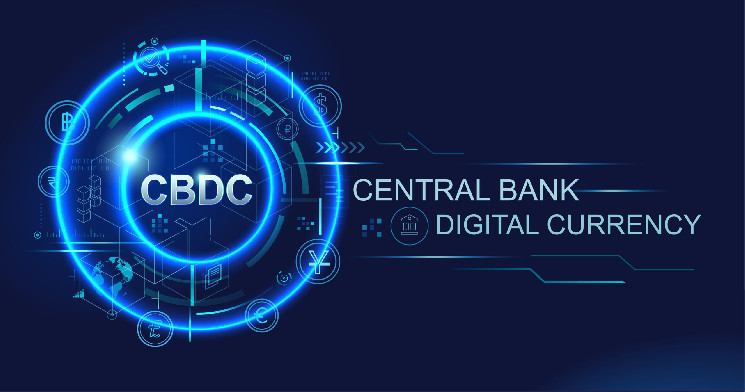- A research paper titled “Potential Climate Impact of Retail CBDC Models” tests Algorand and Hedera as a representation of the e-Krona model and its decentralized design.
- At press time, 130 countries had explored the possibility of rolling out a CBDC, representing 98% of the global GDP.
The Sweden Riks Bank has reportedly subjected Algorand and Hedera to test for retail solutions for the e-Krona’s project. In a report entitled “Potential Climate Impact of Retail CBDC Models,” Riks Bank explored a several aspect of the project, claiming it is designed as a token utilizing blockchain technology.
According to the report, the Sweden e-Krona is being designed with three distinct models namely: a highly centralized design, a semi-centralized design, and a decentralized design.
To access the potential electricity use of conceptual semi-centralized and decentralized designs of e-Krona, Hedera was used to represent the model. As a private permissionless network, Hedera has a gatekeeping strategy applied to a network of a limited number of better actors.
The access to the network is limited to these actors, thereby reducing the risk of external attacks. Each actor (except the core host, i.e. the Riksbank) will only need to run and maintain systems that relate to their interfaces and services towards the consumers as the Riksbank is hosting the core system. Hedera also constitutes a high-tps system. Hedera’s protocol currently has 21 validators with a contemporary throughput of 48 tps and the max postulated sustainable system throughput is 10000 tps. Platt et al., (2021) estimated per transaction electricity consumption of Hedera’s protocol in the range of 0.00002 – 0.00004 kWh/transaction.
Role of Algorand in the e-Krona Project
For Algorand, Riks Bank used it to represent the decentralized design. Algorand operates as a permissioned network where the participating actors are licensed as financial institutions and classified accordingly. This implies that each actor would have to run and host a larger system. The resilience of the model to some extent would be enhanced by the decentralized nature of the model.
This will be done through the possession of multiple copies available. On top of that, Algorand constitutes a high TPS system. Specifically, it has 1126 validators coupled with a contemporary throughput of 9.85 TPS and a maximum postulated sustainable system throughput of 1000 TPS.
The range for the electricity consumption per transaction for contemporary throughput of Algorand consensus is between 0.00017 – 0.00534 kWh/transaction (Platt et al., 2021). The estimation of Algarond’s electricity per transaction from Gallersdörfer et al. (2022) of 0.0027 kWh/transaction, is within the range presented in Platt et.al. (2021). The overall electricity consumption per transaction further depends on the number of nodes connected to the respective network.
Currently, about 130 countries representing 98% of the global GDP are exploring CBDC with 64 of them in the advanced phase. So far, 11 countries have launched a CBDC. China’s extensive pilot has also reached about 260 million people. Interestingly, blockchain platforms like Hedera, Algorand, etc have been used as the underlying technology for this operation.
At press time, Algorand (ALGO) was trading at $0.134 after surging by 1.4% in the last 24 hours. Hedera (HBAR) was also trading at $0.067 after declining by 0.20%.
